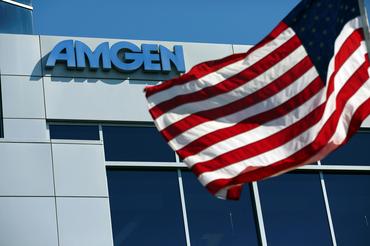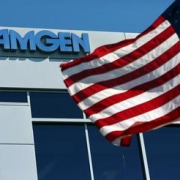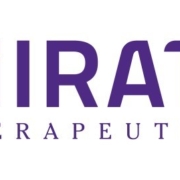FTC effort to stop Amgen’s Horizon takeover faces uphill fight
FTC effort to stop Amgen’s Horizon takeover faces uphill fight
WASHINGTON, May 18 (Reuters) – The Federal Trade Commission (FTC) faces an uphill battle in its fight against Amgen Inc’s (AMGN.O) $27.8 billion acquisition of Horizon Therapeutics (HZNP.O) with an untested argument before a Trump-appointed judge, three antitrust experts said.
Furthermore, the FTC’s complaint, unsealed late Tuesday, expresses concern about deals struck between drug companies that give discounts to pharmacy benefit managers and insurers in return for making their medicines easier to get for their customers.
That would appear to contradict the FTC’s practice of preventing companies from using market power to push up prices.
“Any time a complaint is putting forth a novel theory it’s an uphill battle,” said Katie Funk, an antitrust attorney at Baker, Donelson, adding that they will need to convince the judge that “the alleged anticompetitive effects are not baseless, but are serious and substantial.”
The FTC lawsuit spurred concern among investors who had brushed off the antitrust risk in Amgen’s deal because of its limited business overlap with Horizon. They now fear other potential deals in the drug sector – where many smaller firms are bought up by sector giants – may be imperiled.
The FTC may also struggle to convince the judge hearing the case, Judge John Kness, who was nominated to the court by former President Donald Trump. While it is uncertain how Kness will view the case, judges appointed by Republican presidents are generally seen as more business-friendly in their approach.
To be sure, some antitrust experts said they needed to see the FTC’s evidence and how well it would stand up its complaint before guessing at the outcome.
In its lawsuit the FTC said it believed Amgen could leverage its big selling drugs to pressure insurance companies and pharmacy benefit managers to favor Horizon’s two key products – the fast-growing thyroid eye disease treatment Tepezza and gout drug Krystexxa – over potential competitors.
The FTC said it filed the lawsuit on behalf of patients who needed costly treatments for serious conditions who may be hurt by the deal. “Our complaint is firmly rooted in longstanding antitrust law and we look forward to making our argument in court,” an FTC spokesperson said.
Amgen offers remedy
Amgen said on Tuesday it had made an offer to the FTC in hopes of resolving the issue. “We committed that we would not bundle the Horizon products raised as issues,” Amgen said in a statement.
That sort of commitment, often called a behavioral remedy, has fallen out of favor with antitrust enforcers who do not view such agreements as effective.
The difficulty for the FTC is that the negotiations between pharmacy benefit managers and drug makers often result in lower prices for the drugs, said Andre Barlow of Doyle, Barlow and Mazard, PLLC.
“The FTC will have a high hurdle to overcome with this complaint,” he said. “The antitrust laws do not condemn lower prices, rather they embrace them.”
Seth Bloom of Bloom Strategic Counsel agreed that the FTC’s theory was novel but said it was unclear how the case would be decided.
“These are valid concerns that FTC has raised but what a court will do about it is uncertain,” he said. “The fact that it’s a judge appointed by Trump who you would expect to be more conservative suggests that the FTC will have a more difficult road here.”
Our Standards: The Thomson Reuters Trust Principles.
Source: Reuters





 Getty
Getty




